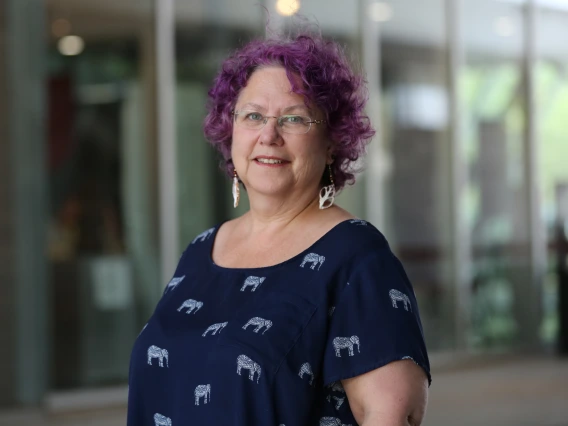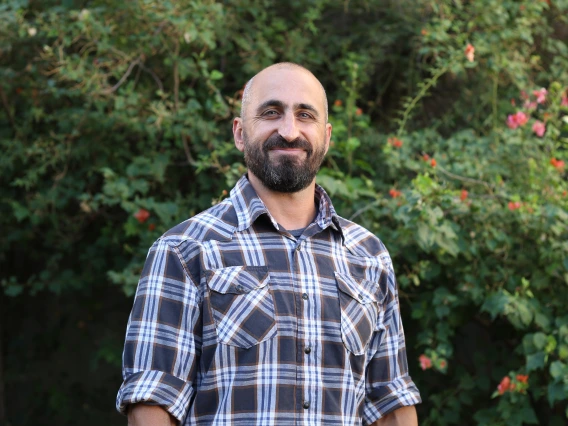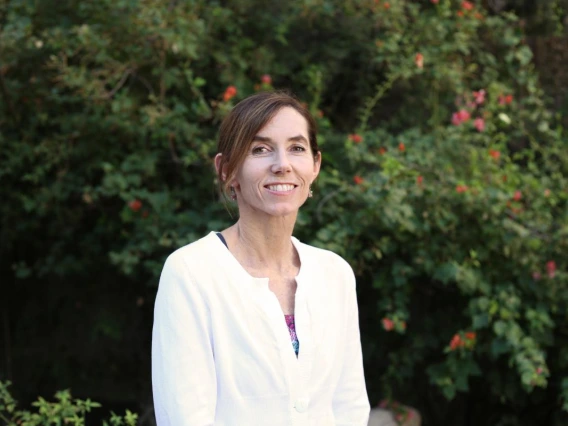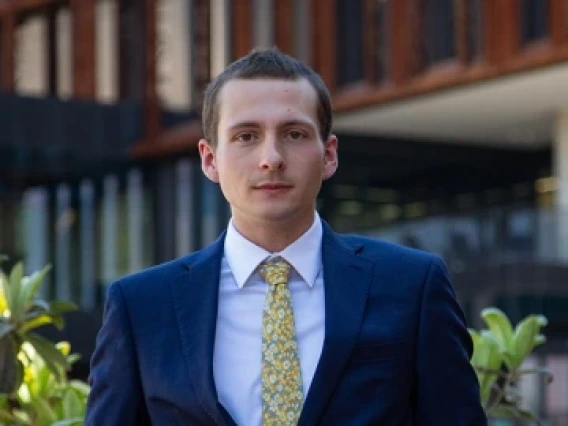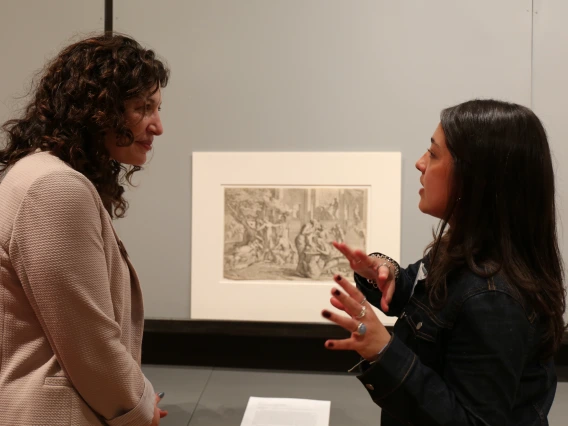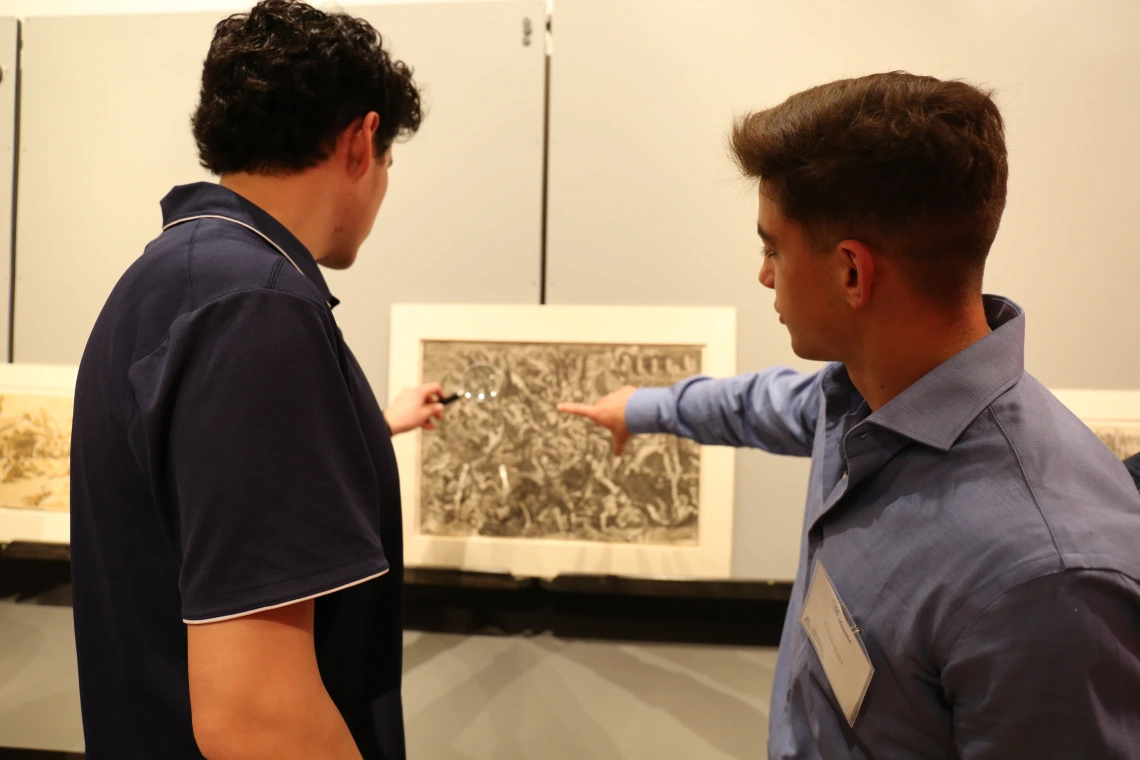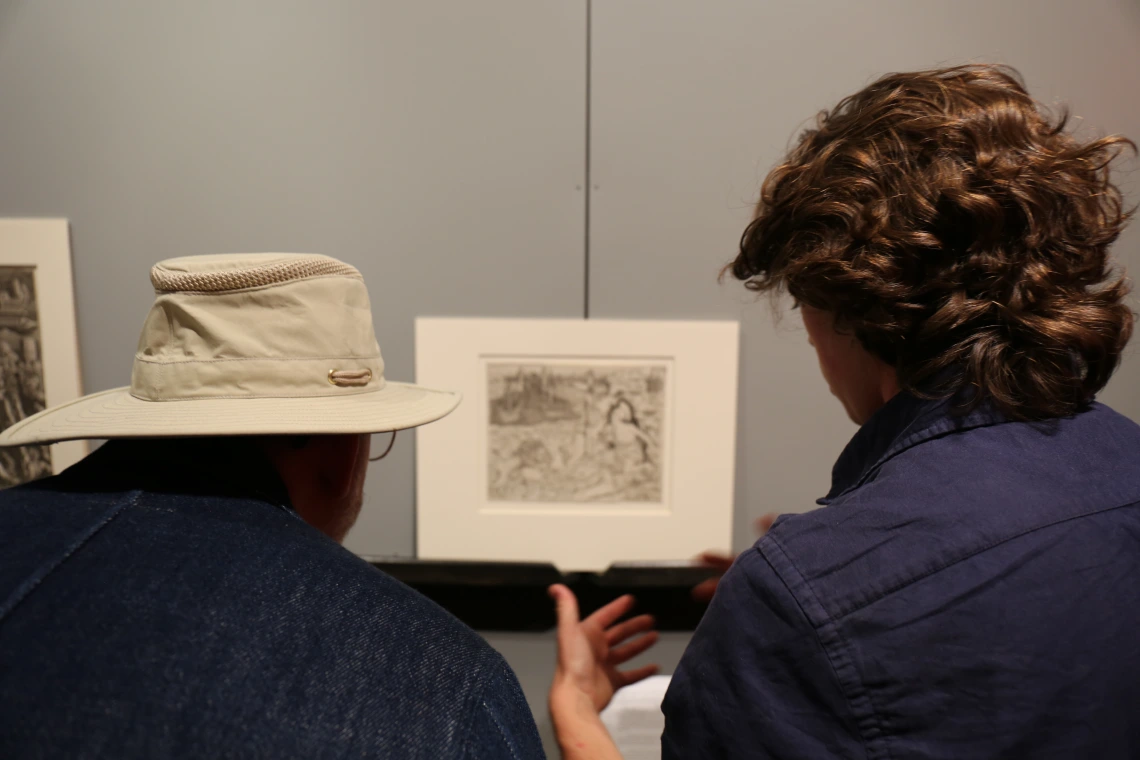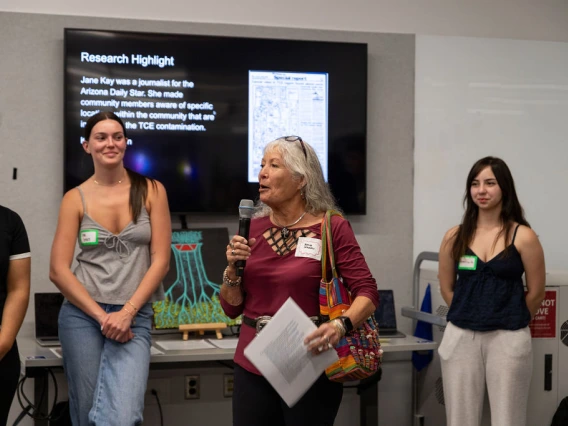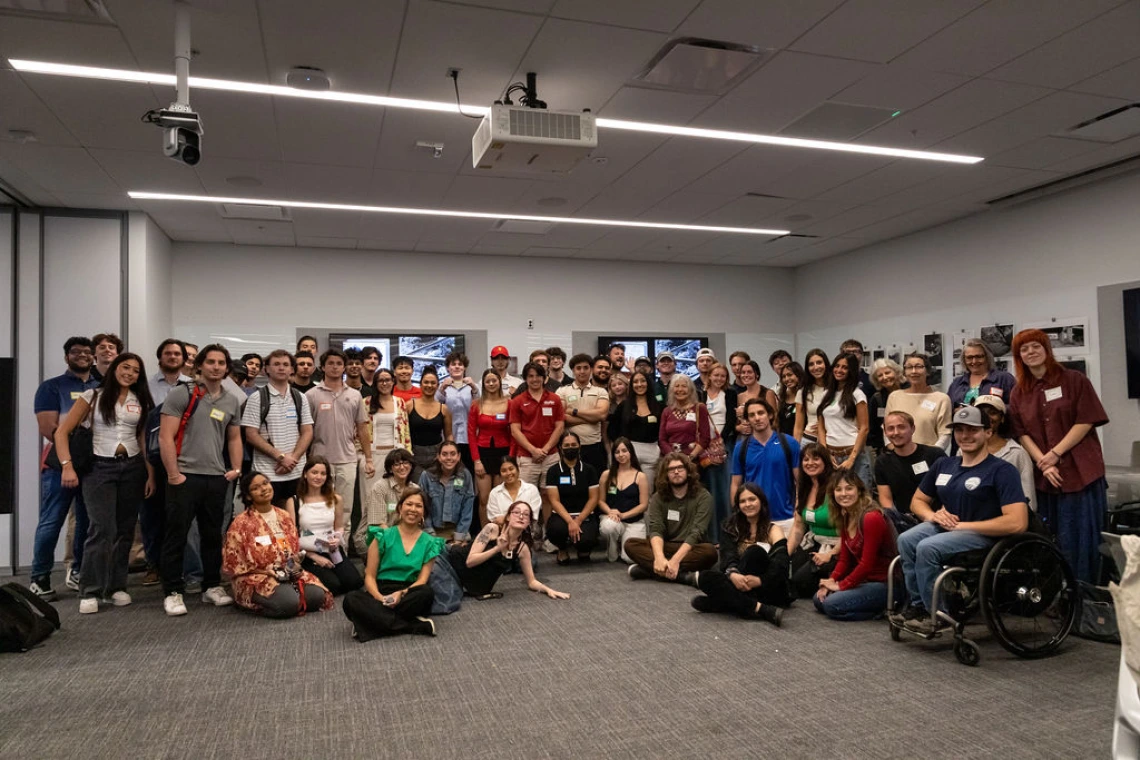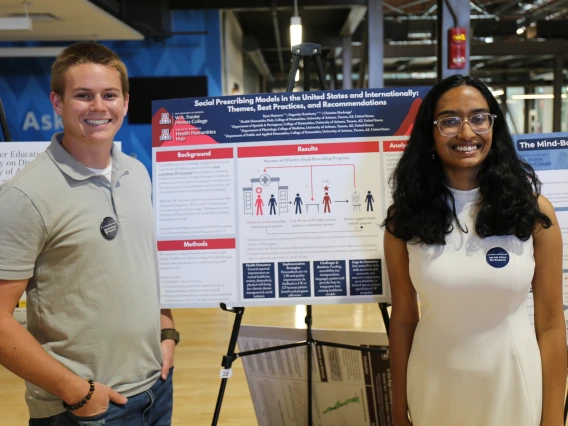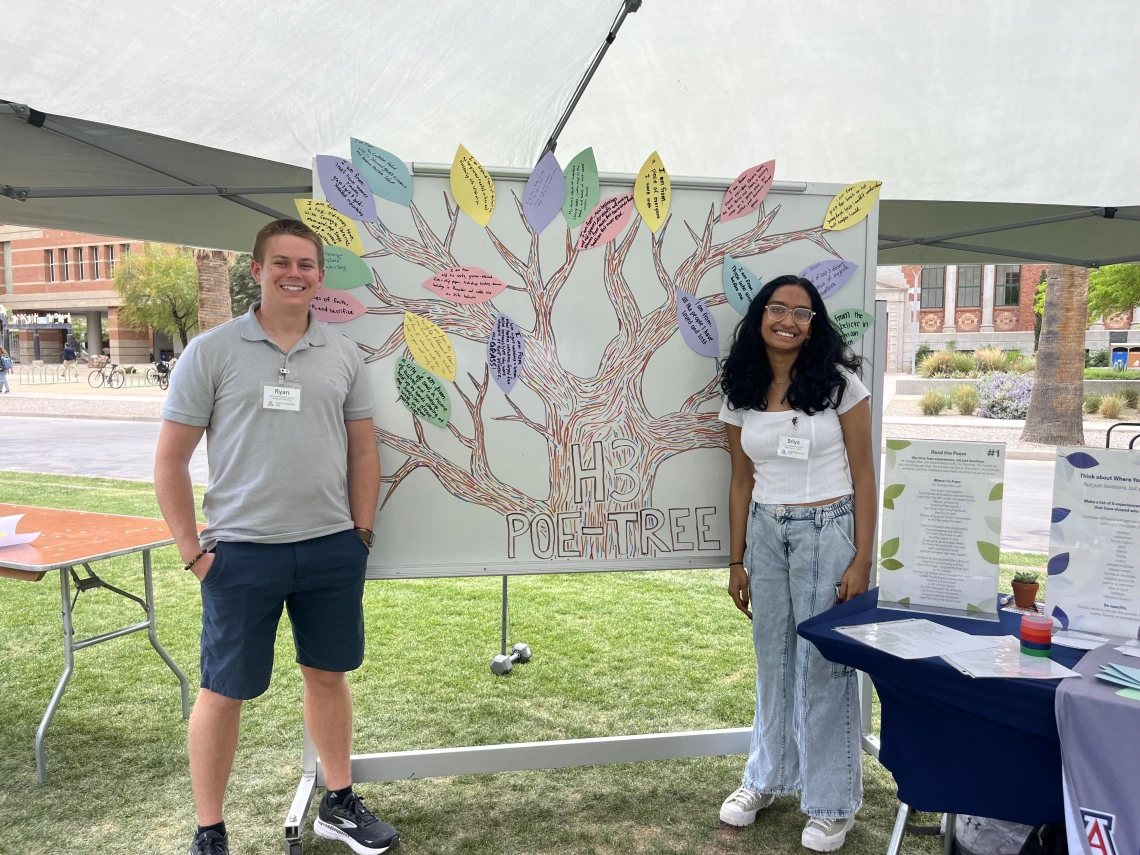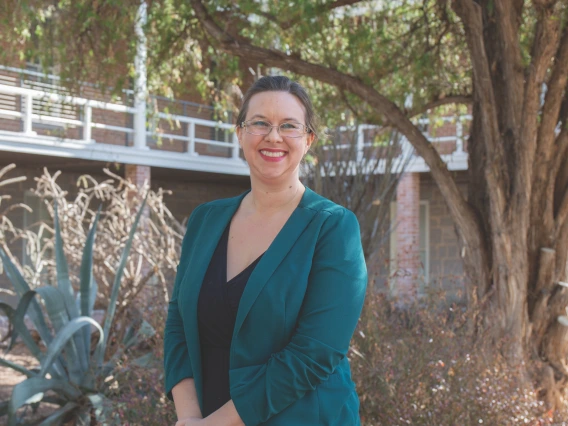Borbala Gaspar Honored with 2025 COH Distinguished Teaching Award
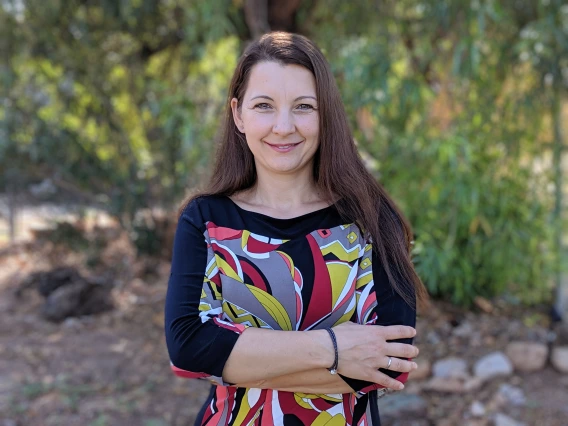
Borbala Gaspar, Lecturer in the Department of French and Italian, is the recipient of the College of Humanities 2025 Distinguished Teaching Award.
Gaspar has a “360-degree approach to education (that) extends to every student, fostering a community of individuals who grow together and learn from each other’s experiences,” wrote fellow Italian faculty member Maria Letizia Bellocchio, herself a 2021 recipient of the COH teaching award, in a nomination letter signed by the rest of the Italian faculty members.
“Not only does Borbala excel as an educator, but she embodies genuine care for her students,” Bellocchio wrote. “In the classroom, Borbala creates an inclusive environment conducive to learning, empowering students to comfortably express their identities and step beyond their comfort zones, recognizing mistakes as integral to both academic and personal development.”
Gaspar teaches basic language and General Education courses, serves as the faculty advisor of the student-led Dolce Vita Italian Club, organizes countless student events, mentors first-year Ph.D. students in the SLAT program, and contributes as a member of the college-wide student recruitment task force.
In her courses, Gaspar includes real-world cultural examples – photographs, advertisements, posters, short video clips, online articles, literary texts, infographics, social media posts and maps – to prompt students to think critically about the language.
“After having built a strong community of students, Borbala promotes student agency by encouraging active engagement with the Italian language and fostering critical analysis of cultural aspects,” Bellocchio wrote. “This approach ensures students develop an awareness of the complex dynamics between textual conventions and context, gaining insights into language, understanding genres, and exploring cultural significance.”
Several students also wrote letters in support of Gaspar’s nomination.
“Dr. Gaspar’s authentic passion for teaching as well as her care for her students is made evident from the moment you step into her classroom. She is truly committed to helping each student improve their Italian language and comprehension skills and develop an overall appreciation for the subject and the humanities,” wrote another. “She is a one-of-a-kind professor who has made such a positive lasting impact both on my educational career and on my overall experience at the University of Arizona.”
“Dr. Gaspar poured so much of her time into me by not only discussing Italian but also my plans for the future. I once had expressed to her how overwhelming and frankly intimidating the prospect of post-university realities seemed. I expressed to her my interest in working in a museum, and later that night, I received a message from her saying she had contacted museums in Italy on my behalf inquiring about summer internships,” wrote one student.
“Dr. Gaspar is exceedingly deserving of this award because of her eagerness to help her students however she can, both inside and outside the classroom. She is a talented educator and a strong pillar of support for her students,” wrote another student. “Borbi has a gift for connecting deeply with her students and encouraging learning with a positive attitude, even when it may seem daunting to students. She continuously creates a passion for learning for her students, even beyond the scope of the course curriculum. It was largely due to her teaching and encouragement that I declared Italian as a second major.”


